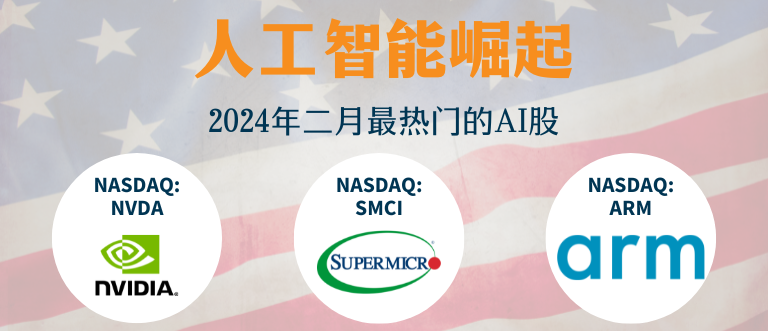Notional Value
Table of Contents
Notional Value
In the world of financial markets, traders and investors often encounter a myriad of terms, each carrying its own significance. One such term that plays a crucial role in derivative trading is “Notional Value.” Grasping the concept of Notional Value is crucial for anyone involved in derivative trading. Whether you’re an experienced trader or a novice investor, understanding how Notional Value works and its significance in risk management can significantly enhance your decision-making process. As the financial markets evolve, having a solid understanding of terms like Notional Value becomes paramount for success. This article aims to comprehensively understand Notional Value, from its definition to its practical applications.
What is Notional Value?
Notional Value, also known as face value or nominal value, serves as a pivotal metric in financial markets, particularly within derivative trading. It denotes the total value of a position or the underlying asset in a financial contract. It serves as the reference point for calculating contractual payments and is a crucial parameter in various financial instruments, such as options, futures, and swaps.
Notional Value involves recognizing that it does not necessarily represent the actual amount of money invested but rather the value of the position. For instance, in a futures contract, the notional value is the contract’s total value, but the trader may only need to deposit a fraction of this amount as a margin.
Understanding Notional Value
Understanding Notional Value is integral to navigating the complexities of financial markets, particularly in the realms of derivative trading. Notional Value, synonymous with face or nominal value, signifies the total value of a position or underlying asset in a financial contract. Understanding this concept is crucial for investors’ effective risk management and strategic decision-making.
Notional Value, contrary to representing the actual invested amount, serves as a reference point for calculating contractual payments. In derivative contracts like futures and options, it plays a pivotal role in determining the size of a position without necessitating a full upfront investment. This dynamic exposes traders to larger market movements while efficiently managing capital.
Notional Value empowers investors to grasp the financial implications of their positions, aiding in effective risk mitigation and capital allocation. As the financial landscapes continue to evolve, a nuanced comprehension of Notional Value ensures investors can optimally utilise derivative instruments to navigate the markets and secure their financial positions.
Working of Notional Value
Notional Value becomes particularly relevant in derivative contracts, where it determines the position size without requiring the underlying asset’s full value. This allows investors to gain exposure to larger market movements with a smaller upfront capital investment.
In derivative contracts, such as futures and options, the Notional Value allows traders to gain exposure to the market without the need for the full value of the underlying asset. The key lies in understanding that Notional Value does not equate to the actual invested amount but serves as a reference point for calculating contractual payments.
In futures contracts, the Notional Value is determined by multiplying the contract size by the current market price. This approach enables investors to participate in larger market movements with a fraction of the capital, as they are only required to deposit a portion of the Notional Value as a margin.
Formula of Notional Value
The formula for calculating Notional Value varies based on the financial instrument. For futures and forwards, the contract size is multiplied by the current market price. In options, it is the number of contracts multiplied by the contract size and the strike price. This computation method ensures that traders can efficiently manage their exposure without investing the underlying asset’s face value.
In the context of options, the formula involves multiplying the number of contracts by both the contract size and the strike price. This calculation provides investors with a clear representation of the financial implications of their options positions.
Example of Notional Value
Consider an investor entering into a futures contract for 100 shares of a stock with a current market price of US$50. The notional value would be calculated as follows:
Notional Value = Contract Size × Current Market Price
Notional Value = 100 \times US$50 = US$5,000
This US$5,000 represents the total value of the futures contract, providing insight into the investor’s market exposure scale without necessitating an upfront investment equal to the entire Notional Value. Instead, the investor may only need to allocate a fraction of this amount as margin, allowing for leverage and efficient capital utilisation.
This example demonstrates how Notional Value allows investors to gain exposure to a significant market position without tying up the entire value of the underlying assets. By efficiently managing capital through Notional Value calculations, investors can participate in the market and navigate price fluctuations while optimising their financial strategies.
Frequently Asked Questions
Notional Value is the total value of a position or contract, while Market Value is the actual worth of an asset in the market. Notional Value is used for contract size determination, while Market Value represents the real-time value of the asset.
Although Notional Value is sometimes referred to as face value, they are not entirely synonymous. Notional Value is more commonly associated with derivatives, while face value typically pertains to bonds and debt instruments.
Investors should aim to hedge against their exposure by using the Notional Value that aligns with their risk tolerance and market outlook. A carefully calculated Notional Value can help protect against adverse market movements.
Notional Value is essential for risk management and determining the capital required to enter a position. It enables investors to participate in the market while efficiently managing their capital and exposure.
The effective notional amount of an investment considers factors such as leverage and margin requirements. It provides a more accurate representation of the investor’s exposure, considering the actual capital at risk.
Related Terms
- Secondary Market
- Subordinated Debt
- Basket Trade
- Speculation
- Quiet period
- Purchasing power
- Interest rates
- Plan participant
- Performance appraisal
- Anaume pattern
- Commodities trading
- Swing trading
- Interest rate risk
- Equity Trading
- Adverse Excursion
- Secondary Market
- Subordinated Debt
- Basket Trade
- Speculation
- Quiet period
- Purchasing power
- Interest rates
- Plan participant
- Performance appraisal
- Anaume pattern
- Commodities trading
- Swing trading
- Interest rate risk
- Equity Trading
- Adverse Excursion
- Booked Orders
- Bracket Order
- Bullion
- Trading Indicators
- Grey market
- Intraday trading
- Futures trading
- Broker
- Head-fake trade
- Demat account
- Price priority
- Day trader
- Threshold securities
- Online trading
- Quantitative trading
- Blockchain
- Insider trading
- Ex-dividend date
- Equity Volume
- Downtrend
- Derivatives
Most Popular Terms
Other Terms
- Options expiry
- Adjusted distributed income
- International securities exchanges
- Settlement currency
- Federal funds rate
- Active Tranche
- Convertible Securities
- Synthetic ETF
- Physical ETF
- Initial Public Offering
- Buyback
- Secondary Sharing
- Bookrunner
- Notional amount
- Negative convexity
- Jumbo pools
- Inverse floater
- Forward Swap
- Underwriting risk
- Reinvestment risk
- Final Maturity Date
- Payment Date
- Margin Requirement
- Mark-to-market
- Pledged Asset
- Yield Pickup
- Trailing Stops
- Treasury Stock Method
- Stochastic Oscillator
- Bullet Bonds
- Contrarian Strategy
- Exchange Control
- Relevant Cost
- Dow Theory
- Stub
- Trading Volume
- Going Long
- Pink sheet stocks
- Rand cost averaging
- Sustainable investment
- Stop-limit sell order
- Economic Bubble
- Ask Price
- Constant prepayment rate
- Covenants
- Stock symbol
- Companion tranche
- Synthetic replication
- Bourse
- Beneficiary
Know More about
Tools/Educational Resources
Markets Offered by POEMS
Read the Latest Market Journal

本文旨在为中级外汇交易者提供必要的信息和知识。它将涵盖我们上一篇文章 “五分钟看懂世界上最活跃的市场-外汇差价合约(FX CFD)...

解锁台湾股市的投资潜力!深入了解由强大的技术驱动型经济推动的股票市场,2023 年机械和电气设备将占出口的 69%。在政治稳定、投资者友好的法规和健全的法律框架下,探索台积电和富士康等全球顶级企业。台湾股市值得称赞的历史表现和在国际贸易中的的重要性使其更具吸引力。在这个科技实力雄厚、经济稳定、充满活力的股票市场中,抓住增长机遇!

了解外汇市场 外汇交易市场又称外汇市场,是一个买卖货币的全球性金融市场。它是全世界规模最大、流动性最强的金融市场,每日交易量超过 6 万亿美元。但外汇市场有一个重要却常被忽视的一点,就是它受交易心理的影响。在本文中,我们将探讨外汇市场的复杂性,还有把重点放在交易心理与传统交易策略共同发挥的关键作用...

五分钟看懂世界上最活跃的市场 -外汇差价合约(FX CFD)
外汇交易市场俗称外汇或外汇市场,是全球金融市场的支柱。它是世界上最活跃的市场,2022 年 4 月,全球交易额达到创纪录的每天 7.5 万亿美元[1] 。这个活跃的市场为交易者提供了利用货币价格波动赚取利润的机会。在本文中,我们将解释外汇市场的基本原理,助您了解其投资机制。 什么是外汇? 外汇市场是一个分散的全球市场,世界上所有货币都在这里进行交易...

随着通胀数据趋向 2% 的理想目标,人们普遍乐观地认为,在任何可能的降息之前,市场都不会受到不利影响。以下是美股市场2024年的一些重要事件,投资者在做出投资决策时可以参考留意。

根据《东南亚态势报告:2023》,失业和经济衰退是当前东南亚面临的主要挑战。各国采取了各种政策和措施以恢复经济,尽力摆脱新冠疫情的影响。尽管如此,越南在经济和社会方面展现出了令人满意的复苏迹象,经济增长逐季上升,成为世界经济的亮点之一。虽然全年GDP增速放缓至5.05%,低于政府6.5%的目标,但越南仍然是地区和世界经济增速较快的国家之一。






















